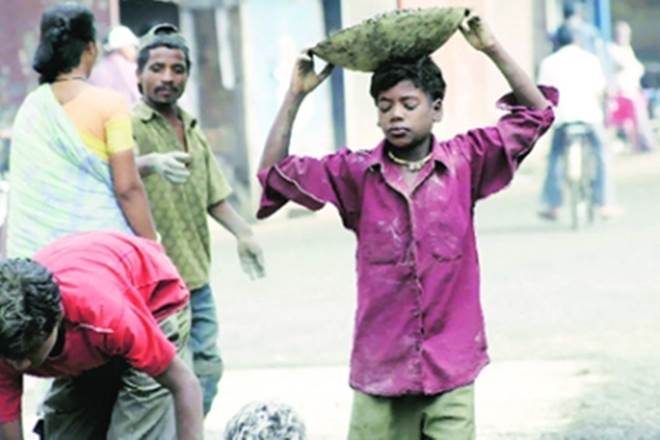Rajya Sabha passes bill prohibiting employment of children below 14 years
05:30AM Wed 20 Jul, 2016

New Delhi: Rajya Sabha on Tuesday passed a bill which prohibits employment of children below 14 years in all occupations or processes except where the child helps his family, with the provision for imprisonment up to two years for any violation.
'The Child Labour (Prohibition and Regulation) Amendment Bill' makes employment of children below 14 years as cognizable offence for employers and provides for penalty for parents.
The Bill, which was almost unanimously passed by voice vote, defines children between 14-18 years as adolescents and lays down that they should not be employed in any hazardous occupations and processes.
It provides for enhanced punishment for violators. The penalty for employing a child has been increased to imprisonment between 6 months and two years (from 3 months to one year) or a fine of Rs 20,000 to Rs 50,000 (from Rs 10,000-20,000) or both.
The second time offence will attract imprisonment of one year to three years from the earlier 6 months and two years.
According to provisions of the Bill, no child should be employed in any occupation or process except where he or she helps his family after school hours or helps his family in fields, home based work, forest gathering or attends technical institutions during vacations for the purpose of learning.
Hailing the development as a "historic" step, Labour Minister Bandaru Dattatreya said it is aimed at "total abolition of child labour".
Explaining the exception, Dattatreya said that 'family' has been exempted as the relationship between employer and employee does not exist and that a law should be framed keeping in mind the ground realities as well as ensuring that it is implementable.
Recalling his own childhood, he said even he used to help his family.
Earlier, participating in the debate on the Child Labour Bill, Satyanarayan Jatia (BJP) stressed the need for proper coordination among three ministries responsible for formulating schemes for welfare of children.
Three ministries - Human Resources Development, Women and Child Development and Labour should come out with composite schemes for welfare of child labour and trade unions should be consulted while formulating these, Jatiya said.
Ravi Prakash Verma (SP) alleged, "India has become an organised system for exploitation of children" and "it is a matter of shame" that government is working in piecemeal.
He alleged that unfortunately the government is pressing for the Bill despite a Parliamentary Standing Committee saying that changes are not good.
Verma said it seems the government is doing this to promote "ease of doing business" and has surrendered before the industrial lobby instead of eliminating child labour.
Warning that "India is on the brink of a demographic disaster" he said one of the accused in Nirbhaya case was child labour and is an example of moral degradation.
A Navaneethakrishnan (AIADMK) rued that recommendations of parliamentary standing committee on Labour has not been incorporated in the Bill.
Vivek Gupta (Trinamool) said while agriculture has been put under non-hazardous category in the bill, it involves hazards like spray of pesticide. He added that family enterprises like carpet weaving, beedi making too were hazardous for the children.
Jharna Das Baidya (CPI-M) said her party strongly opposes the Bill as it is a move towards legalising child labour.
"We are opposing the bill as it is an exit road by the government to allow children to work," she said.
At the same time, she said five states - Bihar, Uttar Pradesh, Rajasthan, Madhya Pradesh and Maharashtra -- accounted for more than 50 per cent of the child labour.
She added that Uttar Pradesh has the highest concentration of child labour with every fifth child labour belonging to UP.
Baidya demanded that government should immediately initiate steps for welfare of such children.
Sarojini Hembram (BJD), in her maiden speech, stressed the need for monitoring of child labour at district level for their welfare.
There is a need for monitoring of child labour at district level and it may be done through the respective members of Parliament, she said.
-FirstPost











